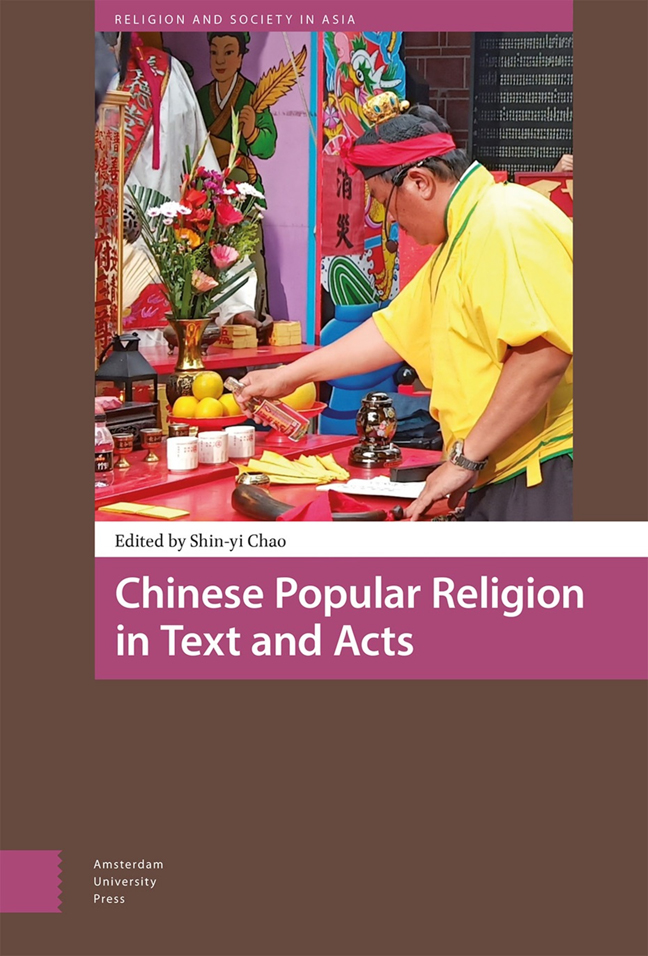Book contents
- Frontmatter
- Contents
- List of Figures and Tables
- Acknowledgements
- Dedication
- Introduction: Text, Acts, and Traditionalization: Performing Chinese Popular Religion
- Section One Texts And Acts
- Section Two Scriptures and Rituals
- Section Three Saints’ Legends and Gods’ Lore
- Section Four Temple Festivals and Pilgrimages
- Index
4 - The Worship of the Ten Kings of Purgatory during the Ming-Qing Period
Published online by Cambridge University Press: 26 March 2024
- Frontmatter
- Contents
- List of Figures and Tables
- Acknowledgements
- Dedication
- Introduction: Text, Acts, and Traditionalization: Performing Chinese Popular Religion
- Section One Texts And Acts
- Section Two Scriptures and Rituals
- Section Three Saints’ Legends and Gods’ Lore
- Section Four Temple Festivals and Pilgrimages
- Index
Summary
Abstract
This essay investigates the cult of the Ten Kings who are believed to be infernal rulers administering postmortem justice. The Ten Kings’ worship, originating in Buddhist monasticism, reconfigured the earlier Chinese underworld landscape that was shaped in medieval liturgical Daoism. Meanwhile, the worship itself also underwent Sinicization along with localization. In the fifteenth century, thanks to the legend of Li Qing 李清 returning from the dead, the practice of observing the Ten Kings’ birthdays took shape. The Li Qi legend was incorporated into various genres such as ritual manuals, piety books, and precious scrolls (baojuan) with various degrees of modification. Buddhist monasteries, in the meantime, continued to be the hub of producing and distributing liturgical manuals venerating the Ten King through the Qing dynasty.
Keywords: The Ten Kings, Chinese hell, Ten Perfected Lords, Li Qing, Dehuatang, ritual appropriation
One of the most consequential innovations in medieval Chinese Buddhism relates to the belief in the Ten Kings of purgatory. The belief was that after death, people would go through a series of ten infernal legal courts before they could be reborn. In those courts, they would be judged by their lifetime behavior, and their misdeeds would be punished by gruesome tortures. However, if family members of the deceased were to commission Buddhist monks to copy and recite the Shiwang jing 十王經 (Scriptures on the Ten Kings), leniency on sentencing could be obtained. Pardons could be further secured by holding zhai 齋 (“ritual feasts” or “abstinence feasts”) during the mourning period to venerate the ten purgatorial lords, with Buddhist monks as the officiants and guests of honor. What was even more beneficial was to hold the ritual feasts, often referred to as Ten Kings Feasts (Shiwang zhai 十王齋), for oneself while still alive.
The worship of the Ten Kings gained currency, during the ninth century, judging by the Buddhist redemptive ritual manuscripts excavated at Dunhuang 敦煌 in western China. The belief continued to grow in popularity in Song times (960–1279), so that it transgressed the liturgical boundaries between Buddhism and Daoism as well as the geopolitical boundaries among countries in East Asia. The twelfth century, in addition, witnessed the Sinification of the Ten Kings.
- Type
- Chapter
- Information
- Chinese Popular Religion in Text and Acts , pp. 105 - 124Publisher: Amsterdam University PressPrint publication year: 2023



